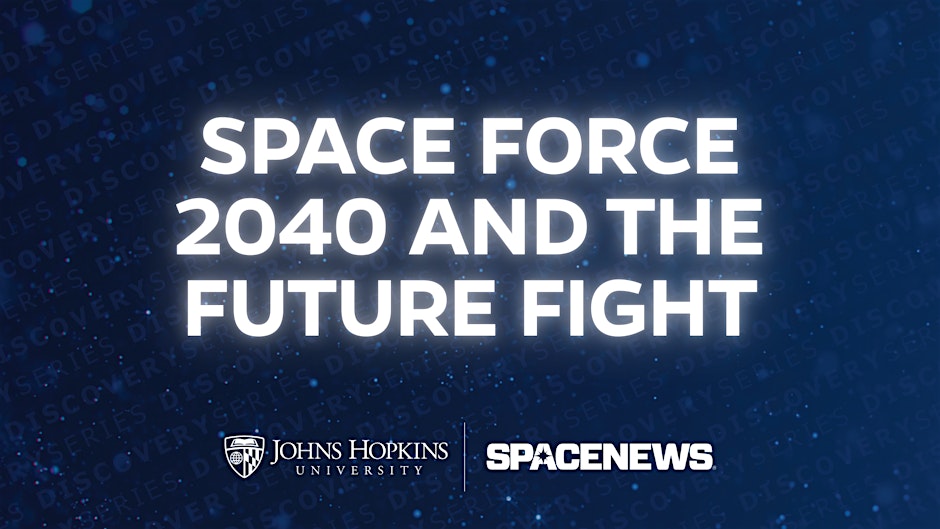AI Insights from the Brains at SpaceNews—your first issue is here!
 | 🤖 AI Insights from the Brains at SpaceNews 🧠 |
| | |
|
|
Welcome, Fellow Meat Computers
Welcome to the first edition of SpaceNext: AI. Get ready to explore the exciting convergence of space and AI as we uncover how these two groundbreaking fields are shaping our future.
Each week, I'll bring you cutting-edge developments and insights in space and AI, sprinkled with a touch of humor and curiosity to keep things engaging. With 25 years in space journalism and a passion for AI, I'm thrilled to embark on this journey with you, one newsletter at a time.
Ad Astra et Ultra, Cum AI 🤖🚀
— Brian Berger, SpaceNews Editor-in-Chief
P.S. We don't have a full-time AI reporter yet, but I'm excited to leverage tools like ChatGPT to bring you this newsletter. It's a fresh way to stay on the cutting edge of AI and space, and I'm eager to share the fascinating quirks and insights I encounter. Stay tuned!
P.P.S. Don't miss out on future issues—click here to sign up for the SpaceNext: AI newsletter and join our dedicated community exploring the future of space and AI together! | | |  | AI as a Co-Founder
A recent New York Times article presents generative AI as a game-changer for entrepreneurs. Carnegie Mellon professor Sean Ammirati urged his students to use AI tools like ChatGPT and GitHub Copilot as "co-founders" in their startup projects. The result? Unprecedented progress in just one semester. (🤖Now that's using your Mellon 🧠!)
This trend resonates beyond academia, with startups using AI to streamline everything from coding and legal reviews to marketing and customer acquisition.
Case in point: Orb.net founder Jamie Steven used generative AI tools like ChatGPT to learn the basics of running a business, asking questions about equity, payroll, and startup strategies. Additionally, his team used GitHub Copilot for coding, significantly accelerating development.
For space professionals, this underscores the potential of AI to accelerate innovation and efficiency in the space sector, offering a powerful tool to scale and stabilize new ventures faster than ever before.
What do you think? Is GitHub Copilot ready to copilot us to Mars? 🚀 | | | AI Takes the Lead in Space
So far this month SpaceNews, AI has proven itself to be a driving force across multiple fronts in the space industry. From advanced analytics to generative language models, here's a look at how AI is transforming our approach to space operations:
• At the ASCEND Conference: Experts highlighted the growing role of AI in space, particularly in enhancing satellite operations and data visualization. While AI's potential is vast, challenges like data quality remain critical—reminding us that even the most sophisticated AI systems are only as good as the information they process.
• Generative AI on the ISS: Booz Allen Hamilton made headlines by deploying a generative AI large language model on the International Space Station. This AI is designed to assist astronauts in real-time, potentially revolutionizing how they handle complex tasks and reducing the need for extensive pre-mission training.
• On-Orbit AI Analytics: Little Place Labs, in collaboration with Loft Orbital, is pushing the boundaries of real-time data processing by testing AI-powered analytics on the YAM-6 satellite. This development underscores the growing trend of conducting data analysis directly in space, a move that could greatly benefit both commercial and national security applications.
• Geospatial Intelligence with AI: Airbus partnered with Atlas AI to leverage AI-driven geospatial insights for better infrastructure planning and market forecasting, particularly in fast-growing regions. This collaboration demonstrates AI's ability to provide hyperlocal insights that can inform strategic decision-making on a global scale.
• AI-Enhanced RF Monitoring: Sierra Nevada Corporation is scaling up its RF monitoring capabilities with AI-enabled satellites. These new ESPA-class satellites will provide more powerful, real-time analysis of electronic emissions, offering critical intelligence for both military and commercial sectors.
🚀 Takeaway for Space Pros: AI is rapidly becoming an indispensable tool in the space industry, driving innovation in everything from satellite operations to real-time analytics. As these technologies continue to evolve, staying ahead of AI trends will be crucial for anyone involved in the future of space exploration and management.
🤔 What do you think? How will AI's expanding role in space operations reshape our industry?
| | |  | 💬 Sound Byte
"AI is going to respond based on the information that you use to train it. If that information is incomplete or does not accurately represent the system, capabilities, and constraints, it isn't very useful. As the saying goes, 'garbage in, garbage out.'"
— Belinda Marchand, Slingshot Aerospace Chief Science Officer, speaking at the AIAA ASCEND conference in Las Vegas, July 30-Aug. 1.
|
|
|
|
Discover More
Explore more stories and in-depth coverage on SpaceNews.com, and follow our live updates on X and LinkedIn. Stay informed by following our coverage on how AI continues to redefine what's possible in space.
Subscribe to SpaceNews SpaceNext: Ai |
|
|
|
|


No comments:
Post a Comment